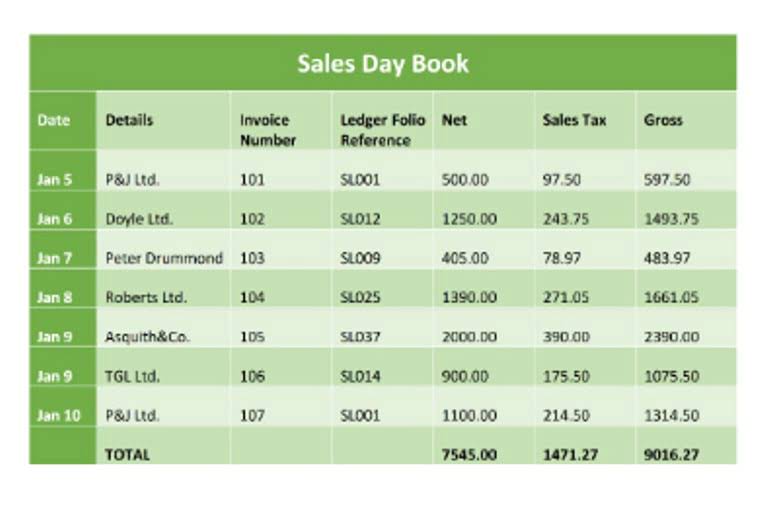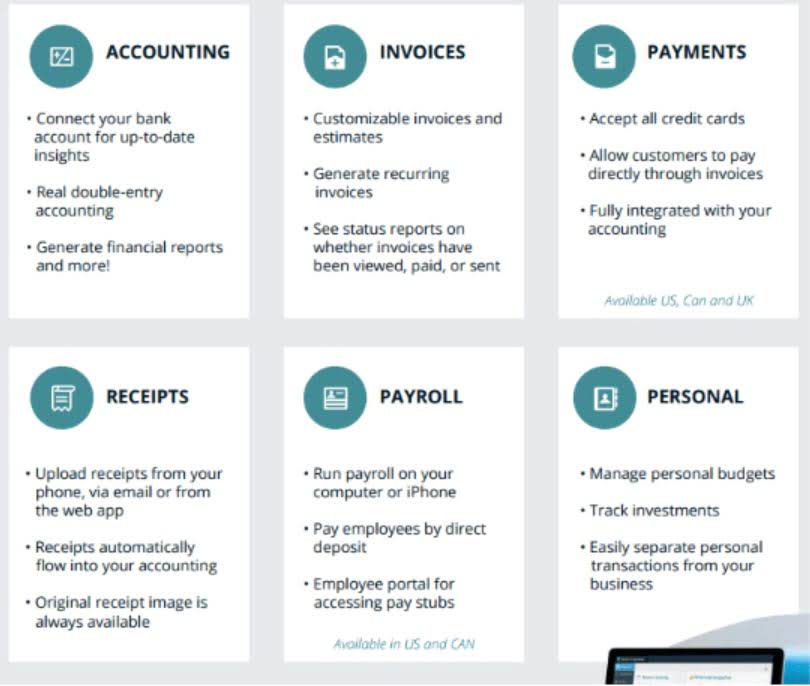
That means if a customer comes to your Dropshipping store and purchases a mug Accounting for Churches from you, you would be required to collect and pay sales tax on that order. The South Carolina retailer is only registered in the state of South Carolina for sales and use tax purposes. In a nutshell, if you use drop shipping in Pennsylvania and you have nexus there, you’d be the one to collect sales tax, not the wholesaler. When your supplier asks you to provide resale certificate documentation for a list of states, this does not mean that you should go and get sales tax permits in each of those states. The seller remits the tax to the state and provides a resale exemption certificate to the supplier. That usually means you’re exempt for charging and remitting sales tax.

Need of GST for Businesses
This includes the state sales tax rate, plus any city, county, or district taxes. Once you have determined the applicable tax rate, you can calculate the sales tax by multiplying the tax rate by the total price of the item. For example, you have an office in Pennsylvania and know that you have nexus when a customer buys something from you in that state. In this case you would collect sales tax from the customer no matter what method – traditional shipping or drop shipping – you use to get the item to the customer. The term “sales tax sourcing” is used to describe which tax rates are applied to a given purchase, and to which jurisdictions the tax money collected is owed. When you ship a product to another address, the knowledge of your tax rules becomes very important in both the sales tax calculation who pays sales tax on drop shipments and when completing your tax returns.
- In the past, the law required you to have a nexus in a state before you were required to pay sales tax in that state.
- That means that they, too, are responsible for collecting sales tax wherever they have passed the economic threshold.
- Your vendor reserves the right not to accept your resale certificate.
- The tax rates and HSN codes are different and depend on the product that you sell online.
- They’re responsible for managing and maintaining these certificates to produce in the event of an audit.
- If you’re the seller, you’re generally required to collect sales tax only if you have nexus with the customer’s state.
Legal liability issues with dropshipping
- When your state’s department of revenue mails you a sales tax authorization, it will include a sales tax table specifying the tax rate you must charge your customers.
- Other states require an in-state exemption, but without a nexus in that state, the retailer may not be able to obtain this certificate.
- IGST is collected by the central government on interstate sales transactions.
- Yes, drop shipping businesses generally need a tax ID for sales tax purposes.
- To avoid being charged tax in situations like this the company has limited choices.
- If you purchase goods from a dropshipper that lives in a different state, sales tax liability can become confusing when the final destination of the package is within the dropshipper’s state.
You can apply for a sales tax exemption certificate or resale certificate, which allows you to purchase products from your supplier without paying sales tax, as long as the items are intended for resale. To obtain this certificate, you must apply through your state bookkeeping government, and it’s essential to use it strictly for business-related purchases. Tax automation software, like Avalara and TaxJar, can help e-commerce businesses handle the intricacies of sales tax calculations for drop shipping. These tools provide real-time tax rate calculations for each transaction, considering factors such as the seller’s and buyer’s locations, product taxability, and any applicable exemptions. Tax laws change frequently, especially with the rise of online businesses like dropshipping. Make sure to stay informed about the latest tax rules, including sales tax laws, income tax rates, and any state-specific requirements.

Drop Shipping Legal Requirements in India

You do not need a permit in Georgia and do not need to collect or remit sales tax in Georgia. Manufacturer/wholesaler has sales tax nexus and needs appropriate resale documentation from you. If you’d like to know more about how drop shipping impacts tax compliance for your business, an Avalara representative will be happy to talk to you. The supplier maintains the certificate as proof of sales tax exemption. As with all things sales tax, the answer depends on multiple factors, including the locations of all three parties, the taxability of the goods, and where the seller or supplier has nexus . States with non-collecting seller use tax reporting requirements include Colorado, Oklahoma, and Vermont.
Sales tax obligations for a drop-shipping supplier
- You can set a 1-3 month trial period, create a company and obtain a GST certificate.
- Having a comprehensive record-keeping system allows you to efficiently deal with tax authorities and auditors, avoiding surprises or lapses in compliance.
- The majority of the time, you may place purchases with your suppliers without having to pay sales tax.
- Regulatory requirements for drop shipping sales tax vary by jurisdiction.
- This allows you to avoid paying sales tax on the products you buy from the supplier, as long as you intend to resell them.
You have registered for a permit in Kansas but you are a pretty new seller, and you don’t have nexus anywhere else. Typically in state to state transactions, sales tax is determined by the customer’s location. That means that they, too, are responsible for collecting sales tax wherever they have passed the economic threshold. Collecting sales tax as a drop shipper can feel like an algebra problem, depending on the scenario. Dropshipping is a retail fulfillment strategy where a store doesn’t maintain inventory of the goods it offers. Instead, it buys the product from a third party and ships it to the buyer.
The process of obtaining a tax ID varies by state, so it is important for drop shippers to research the requirements in each state they do business in. In both California and Texas, it is generally mandatory for drop shippers to collect sales tax if they have nexus in the state. Nexus is a connection between the seller and the state that makes the seller responsible for collecting and remitting sales tax.

Your failure to provide a resale certificate turns this “resale” transaction into a taxable “retail” transaction. This can pose a real dilemma for companies that don’t have nexus in the ship to state but have drop-shipments made to these customers. If your customer is a wholesaler and your company does not have nexus in California, then your customer can provide your vendor with a resale certificate directly. If the seller doesn’t have nexus in the state where the goods are delivered, but the supplier does, the supplier may be required to collect sales tax from the customer. A handful of states, including California and Texas, typically hold a third-party drop shipper with nexus liable for sales tax if the retailer doesn’t have nexus with the state. Since the South Carolina retailer is not registered in Illinois for sales and use tax purposes, it is unable to issue a valid Illinois resale certificate.
